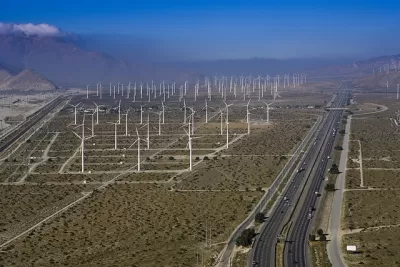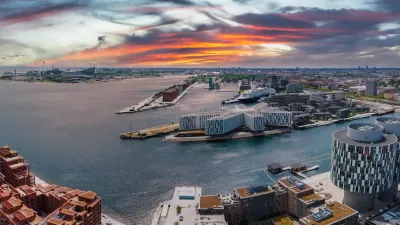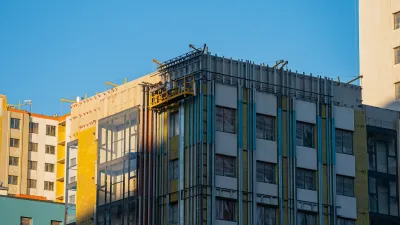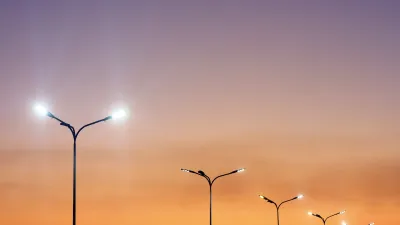There are plenty of opportunities to green the world's energy production and consumption infrastructure, but it will take good planning.

Sustainability has been a topic of interest among urban populations for years—and for good reason. Researchers are constantly looking for new methods of renewable energy resources to offset the amount of energy produced in dense metropolitan locations.
In fact, because so much of the world’s economic activity takes place in cities, they consume up to 80 percent of the energy produced globally. They contribute about the same portion of greenhouse gas emissions.
Because of this, cities play a crucial role in fighting climate change, which has led to the rise of digitally-savvy cities that utilize data for efficiently managing resources. For any attempts at being eco-friendly to be successful, though, cities need to include the energy industry in their planning.
Plan for Renewables
Replacing fossil fuels with renewable energy is a central part of the clean energy evolution. To make sure cities get the most benefit from wind, solar, and other renewables, and avoid any pitfalls, planners need to prepare for incorporating them into the grid.
Cities should begin to develop guidelines for approving solar projects and prioritizing the necessary infrastructure. Some have already introduced renewable energy policies, while others are lagging.
Introducing these relatively new technologies comes with new challenges. One seemingly simple, but important, problem is that of overshadowing—when structures block sunlight from reaching solar panels. To function properly, panels need sufficient access to sunlight, so planners need to keep this in mind when zoning and approving building permits.
Reduce Energy Consumption
Running entire areas on renewable energy is rare and challenging, since these energy sources are variable—meaning they produce different amounts of energy depending on the amount of sun or wind they receive. Theoretically, it may be possible to run entire cities on renewable energy, but today, most buildings that use renewable energy use fossil fuels or nuclear plants as a backup.
Focusing on energy efficiency can help alleviate these challenges and reduce emissions by lowering energy demand and consumption. This is one area where local governments and utility companies can collaborate.
Regulatory bodies sometimes require energy companies to offer programs that promote efficiency. Regulators can also create rules that make efficiency easier for utilities.
Localize With Microgrids
Another concern some people have regarding renewables is resiliency and reliability. Because renewables are variable, critics worry they can’t provide energy reliably. Microgrids can help make the grid more resilient, while localizing energy production in support of distributed energy resources, such as rooftop solar panels.
Microgrids are part of the larger grid, but can cut themselves off if there’s an outage elsewhere on the grid, stopping the problem from spreading. In this way, they improve reliability. A project outside of Tokyo, Japan, consists of 1,000 homes that run on a solar-powered smart grid. The community can operate off the grid for three days, emits 70 percent less carbon than a typical town of its size, and sells 30 percent of its energy back to the grid. The company responsible for this project is now trying something similar outside Denver.
Rethink Transportation
Transportation is another area that has a huge impact on the climate and on the well-being of a city’s residents. Smart cities are rethinking urban transportation by focusing less on personal automobiles, or even banning them, and instead prioritizing clean public transportation, ride-sharing, and bike-sharing.
Sidewalk Labs, a venture of Google parent company Alphabet, is working on cloud solutions that connect a city’s various transportation options to provide more complete information to planners and citizens.
Various government offices or transit companies typically control transportation data and keep it separate. Sidewalk Labs wants to combine all this information into one cloud platform, so people can see all their transport options and pick the one that’s most convenient and affordable. This could also make it easier to find eco-friendly transportation.
The eco-friendly city planning process doesn’t completely overlook personal vehicles, though. The U.S. Department of Transportation recently provided funding to a project to develop roadways and parking lots made of solar panels.
The fossil fuel industry can also recycle the byproducts of coal combustion in order to create other goods. For example, utilities are reusing fly ash and bottom ash to produce materials such as roadways, roofing tiles, embankments and more.
Optimize With Data
Data plays a central role in all these smart city strategies. It can help us distribute energy more efficiently, place renewable resources in optimal locations, reduce energy demand and consumption, improve transportation systems, and more.
Utilities have access to much of this essential data, so city officials should work with them to learn more about how to best meet their cities’ needs and transition more successfully to eco-friendly living.
Cities and the energy industry are major contributors to climate change, so they can play a crucial role in preventing it and mitigating its effects. When cities, energy companies and individuals work together, we can make our cities smarter and eco-friendlier, as well as better places to live.

Alabama: Trump Terminates Settlements for Black Communities Harmed By Raw Sewage
Trump deemed the landmark civil rights agreement “illegal DEI and environmental justice policy.”

Study: Maui’s Plan to Convert Vacation Rentals to Long-Term Housing Could Cause Nearly $1 Billion Economic Loss
The plan would reduce visitor accommodation by 25% resulting in 1,900 jobs lost.

Planetizen Federal Action Tracker
A weekly monitor of how Trump’s orders and actions are impacting planners and planning in America.

Wind Energy on the Rise Despite Federal Policy Reversal
The Trump administration is revoking federal support for renewable energy, but demand for new projects continues unabated.

Passengers Flock to Caltrain After Electrification
The new electric trains are running faster and more reliably, leading to strong ridership growth on the Bay Area rail system.

Texas Churches Rally Behind ‘Yes in God’s Back Yard’ Legislation
Religious leaders want the state to reduce zoning regulations to streamline leasing church-owned land to housing developers.
Urban Design for Planners 1: Software Tools
This six-course series explores essential urban design concepts using open source software and equips planners with the tools they need to participate fully in the urban design process.
Planning for Universal Design
Learn the tools for implementing Universal Design in planning regulations.
Caltrans
Smith Gee Studio
Institute for Housing and Urban Development Studies (IHS)
City of Grandview
Harvard GSD Executive Education
Toledo-Lucas County Plan Commissions
Salt Lake City
NYU Wagner Graduate School of Public Service






























